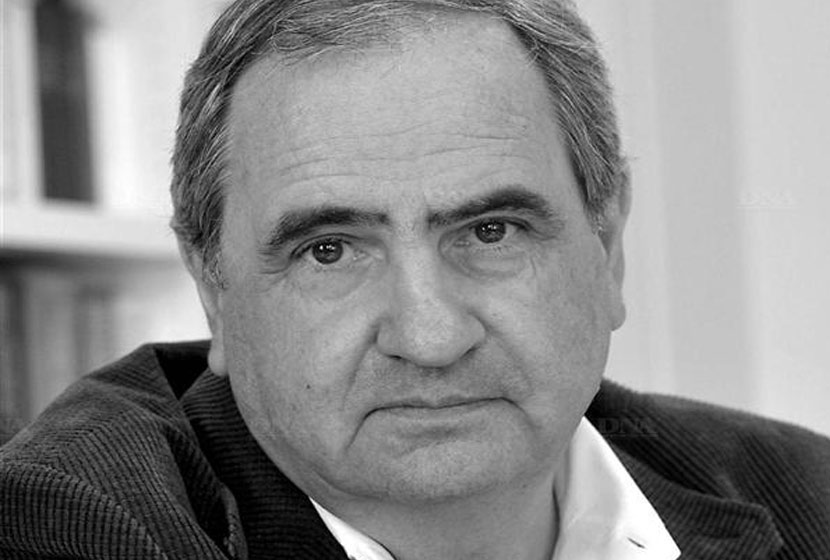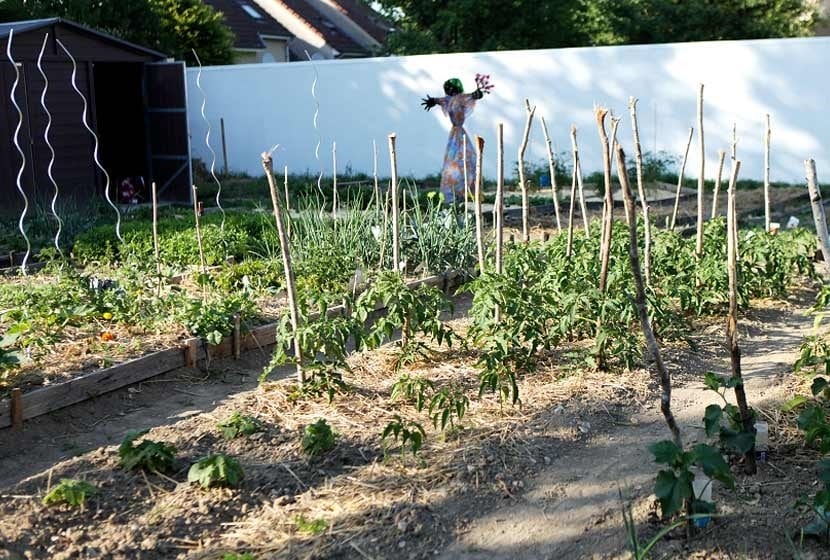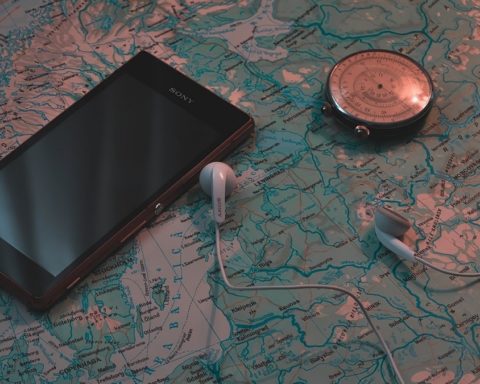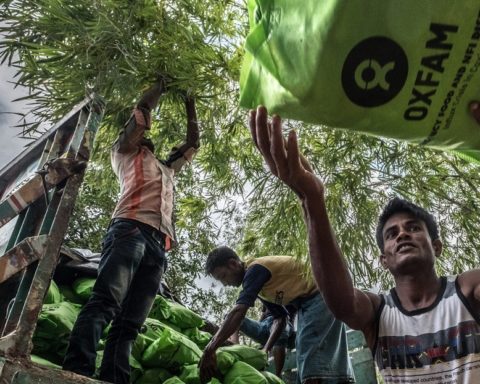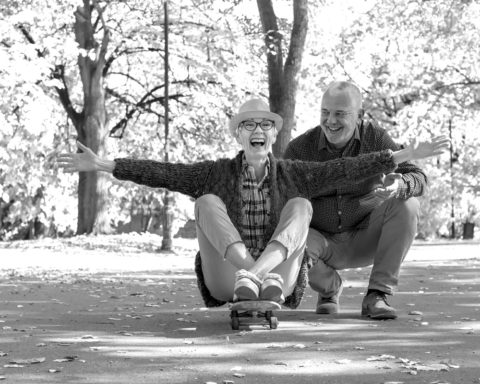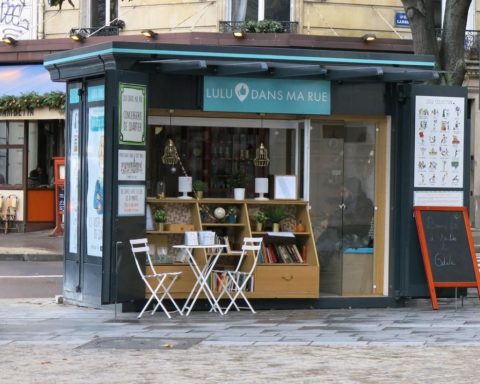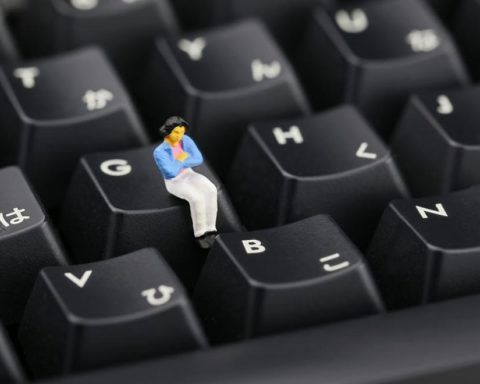

L’historian Pierre RosanvallonProfessor at the Collège de France, created this year a participatory website on the Internet to allow the "invisible" members of society to tell a story about their lives. Entitled "Raconter la vie" (Telling the story of life), this site is intended to experiment with a narrative form of democracy, giving visibility to those who feel poorly represented in our country. In doing so, it aims to help our country overcome its current situation of democratic fragility.

Democracy in peril
Despite their attachment to universal suffrage, our citizens today are suffering from an acute form of "democratic fatigue." This phenomenon brings our political scene into disrepute, while a large part of the electorate declares itself "in need of representation" in our country. This situation was summed up by Michel Rocard at a recent Foresight Congress in the following terms: "There is no longer in France the possibility of intellectual understanding between an elected representative and a voter." He complements this in the survey conducted by L'hebdo Le Un among the academic world, on the theme : "Is the French democatia at the end of its rope?" as a reminder that "the grand air of disenchantment" is being played out all over Europe "but the solution is not in his hands, it's still in the hands of the researchers." (1)
While in this same context, the sociologist Dominique Schnapper warns us of "the danger to democracy when words no longer mean anything" and that his colleague Alain Caillé concludes that "overcoming the current political game can only come from a mobilization of the civic society, that of the associated citizens."
One finds a rather similar vision in the work of academics in Poitiers, according to whom it is advisable "to introduce into democratic melancholy a new system of speech which is assumed by citizens...too often dispossessed of the common thing and which restores to language all its political vocation". (2)
This confidence in the ability of our country's active forces to work for the public good should not make us forget that they are not called upon to intervene in all areas where the public authorities fail. This opens up the prospect of unprecedented alliances between the different spheres of our society, if we want to preserve the future of our democracy.
 In the end, why is democracy in the 21st century at the foot of the wall?
In the end, why is democracy in the 21st century at the foot of the wall?
This century is faced with a paradox: never before has democracy caused so much frustration in the countries that are deprived of it, nor so much disappointment in the countries that have adopted it! Although this state of affairs has been known for a long time, no conclusive remedy has yet been found for it. The essay published in the Economist...this winter, entitled "What's gone wrong with democraty"... (3) is rich in unpublished data, but it sees no solution to this paradox or gap.
This is not the case for academic research, which has been exploring for several years the possible outcome of the crisis of democracy. The historian's intuition Cynthia Fleuryin his book on "Pathologies of Democracy"...( 4), caught my attention.
She quotes her sister, Agnes Antony : "It's all happening, "wrote the latter, "as if democracy had not been able to explore to the end its premises, its deep sense of human achievement, and it is perhaps the significance of its present hesitations and lack of confidence that it is discovering its limits. ” (5) And Cynthia Fleury concludes with this prognosis: "if the French people are to reform their democracy, they must first brave this unthinking democracy."
 A civic awakening
A civic awakening
This is precisely the challenge taken up by the "Telling the Story" project, (6) by Pierre Rosanvallon, in the continuity of his own work.
For this author, "it is democracy as a form of society and not only as a political regime that we must re-found today". A society to which he intends to confer a less unequal, more convivial and more attentive to the well-being of each individual.
The said project has a twofold objective: on the one hand, to "make things happen" for people in need of recognition in our society and, on the other hand, to revitalize the democratic spirit of the latter. "For the democratic ideal to be revived and given form, a narrative representation must be constructed, which will weave, from multiple life stories, the threads of a common world. Making today's society more legible will enable individuals to reappropriate their existence and to situate themselves in the world," he said. says on the Telling the Story of Life website.
This programme has two components, including a collection of works published by Le Seuil (about ten per year) and a participatory website. (7). The latter, rich in several forms of editorial contributions, puts online, free of charge, life stories from "invisible" people who wish to be recognized by society, to whom it is dedicated.
 Who are the authors of these life stories? What do they tell us?
Who are the authors of these life stories? What do they tell us?
Some 250 men and women of all ages and circumstances have already entrusted, sometimes under a pseudonym, the stories of one facet of their lives to the new site, where they can be downloaded free of charge. We meet the real country in the diversity of its activities, its hopes and its hardships ... Beginning authors, (admitted as soon as they enter the 6th grade!), rub shoulders with writing professionals, while manual workers join teachers, scientific researchers, craftsmen, care specialists ...
Many are the vocations that are looking for themselves or the people who have been tried and tested, who expect practical advice and moral support from their exchanges on the site. This is the case, for example, of workers in precarious employment, or without status, the unemployed, "nomads" between two worlds and young people in difficulty... the number is large of "those who have only had the rage to get out of it".
In general, however, the tone of the contributions shows a positive attitude towards life. As in this anonymous confidence: "I'm proud of my heart. It's been destroyed, burned, broken, crushed. It still works."
And this is how the site Telling the Story of Life "is not limited to exposing misfortune, to get out of wishful thinking, alienating utopia and above all sterile discouragement, and to highlight positive experiences, as well as latent capacities for action and creation."
"For me, it's the citizen consciousness that must be reborn." One of her most active contributors, a bookbinder of her state, concludes the debate thus initiated. This is indeed the condition for the new network to reach a "properly societal dimension," as Pierre Rosanvallon hopes.
Rediscovering the meaning of his presence in the world

 This ambition is not utopian. It owes its authors a decisive asset: the spirit of mediation, whose role is essential to the health of our democracies and whose active principle pursues the same goal as that of Telling the Story of Life: to lead people in difficulty to find, thanks to the sharing of words and the presence of benevolent third parties, a moment of reconciliation with life. An experience that will make them the actors of their own existence and invite them, according to the founder of the Centre for Mediation and Training in Mediation, Jacqueline Morineauto form "a community of sharing, capable of giving birth to a new social project." (8)
This ambition is not utopian. It owes its authors a decisive asset: the spirit of mediation, whose role is essential to the health of our democracies and whose active principle pursues the same goal as that of Telling the Story of Life: to lead people in difficulty to find, thanks to the sharing of words and the presence of benevolent third parties, a moment of reconciliation with life. An experience that will make them the actors of their own existence and invite them, according to the founder of the Centre for Mediation and Training in Mediation, Jacqueline Morineauto form "a community of sharing, capable of giving birth to a new social project." (8)
This is indeed the ultimate goal that Pierre Rosanvallon assigns to his initiative: "to provide the elements for a positive reconstruction of a common world, recognized in its diversity and its reality...for the rebuilding of a democracy that is today dangerously fragile. “
To this end, he plans to use "the democratic virtualities of the internet... to recruit allies from the social networks of citizen essence."
Paths of convergence to explore

 This path is all the more likely to be successfully completed as it is bound to converge with those of innovators who have earned the label of "high democratic quality" in their field.
This path is all the more likely to be successfully completed as it is bound to converge with those of innovators who have earned the label of "high democratic quality" in their field.
We owe it to Ariane MnushkinThe founder of the Théatre du Soleil, a stimulating formulation of the spirit that animates these bearers of the future:
"We can no longer be content to be consulted only from time to time. With boldness, with modesty, let us all declare ourselves responsible for everything. Let us say it loud and clear to our children: They are now entering the first age of humanity, not the end." (New Year's greetings 2014)

Notes :
1) Le Un, N°9, June 4, 2014
2) Dominique Royoux, (dir) Jean-Pierre Bourdin and Philippe Eon, La Mediation, un enjeu démocratique, Sarrant, La Librairie des Territoires, 2013, p.114
3) The Economist, 1/3/2014, p.43
4) Cynthia Fleury, Les Pathologies de la démocratie, Paris, Fayard, 2005 and Livre de poche, biblio essais 3è édition, 2012 , p.302
5) Agnès Antoine, L'impensé de la démocratie, Tocqueville, la citoyenneté et la religion, Paris, Fayard 2003, p.14.
6) Pierre Rosanvallon, Le Parlement des invisibles, Paris, Seuil, 2014. (Unless otherwise stated, the quotations in this article are from this book).
7) www.raconterlavie.fr
8) Jacqueline Morineau, April 2014, correspondence with the author.

